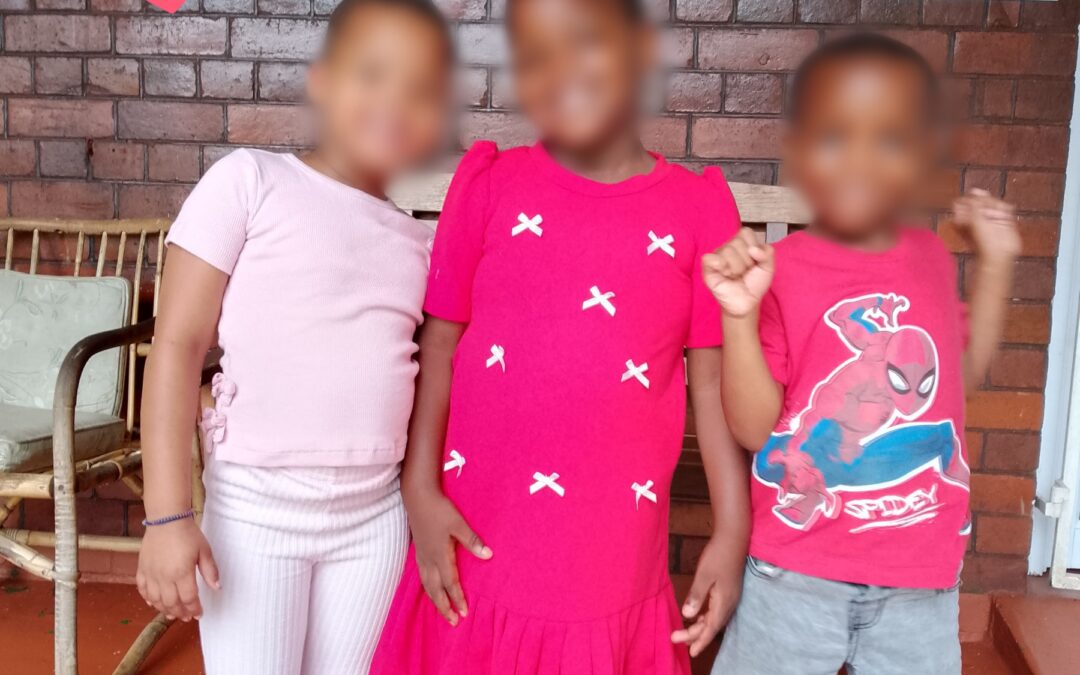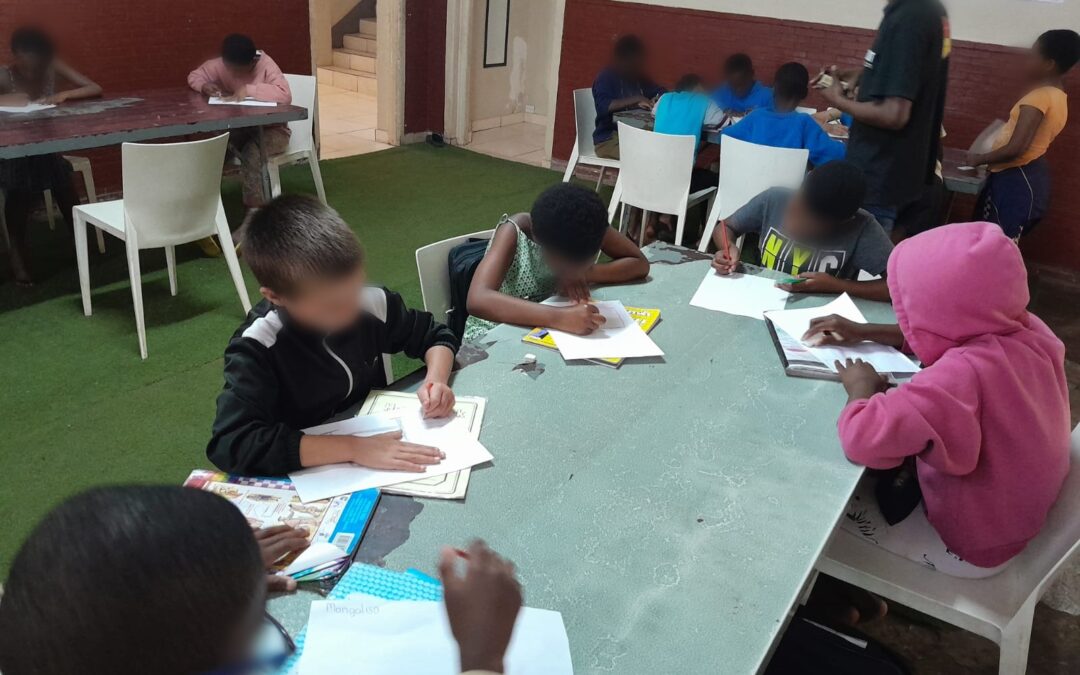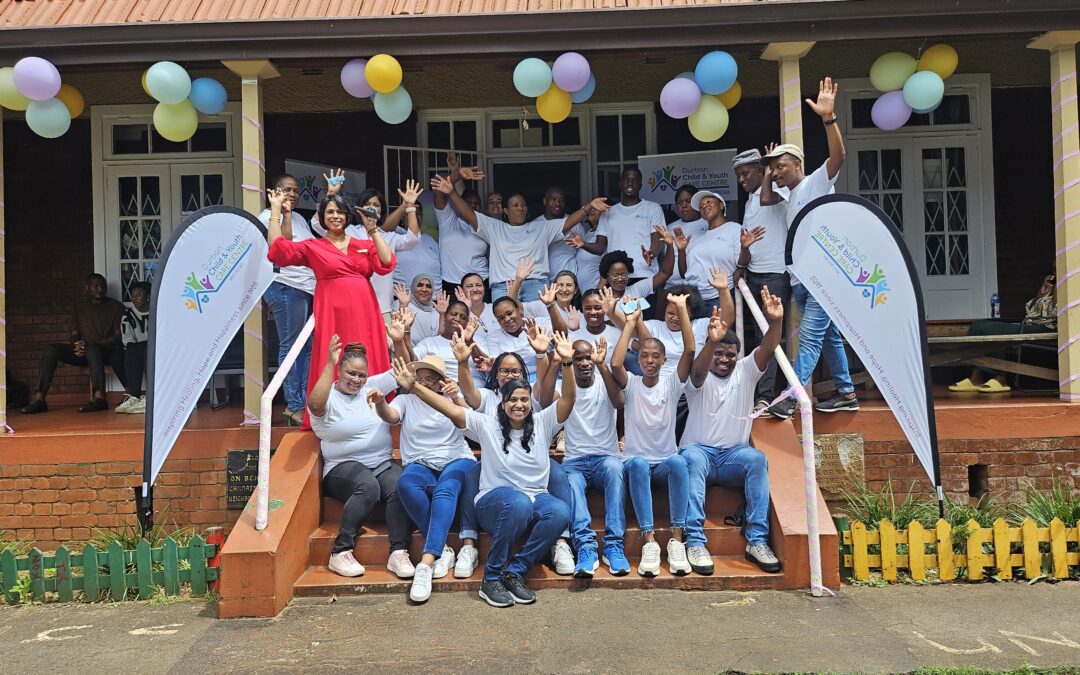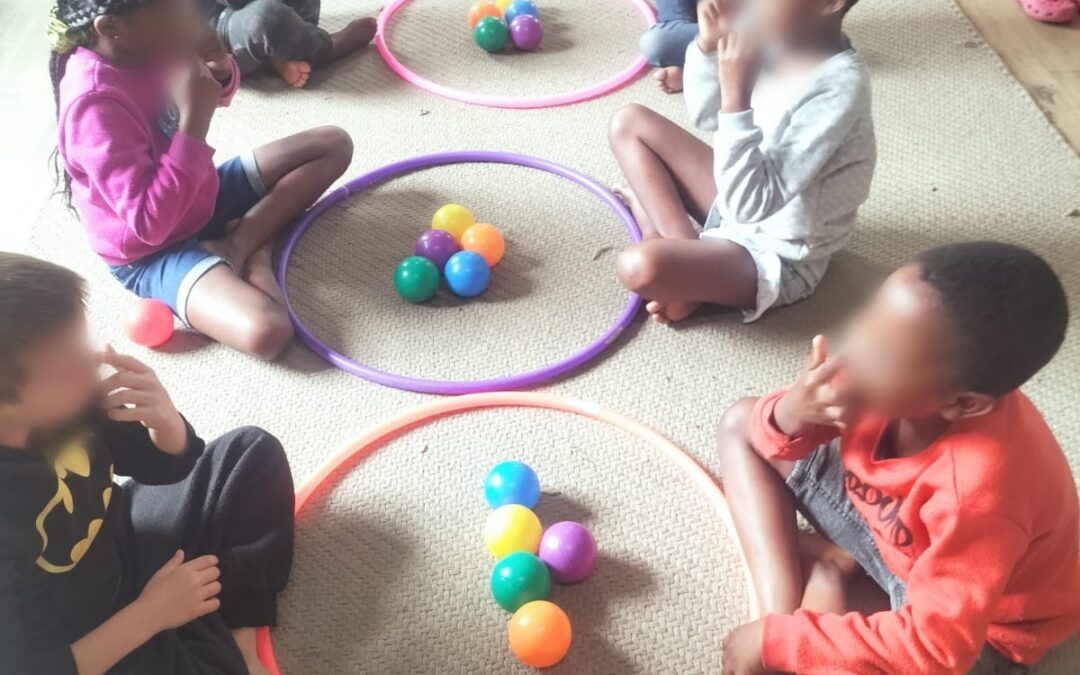
Feb 13, 2026 | Blog
Across much of the world, February is synonymous with ‘love.’ While Valentine’s Day offers a reminder to celebrate it, at the Durban Child and Youth Care Centre we are privileged to witness love in action every single day.
For us, love is far more than a once a year sentiment. It is something lived and experienced in daily routines, shared meals, homework support, laughter on the playground, and in the unwavering dedication of our staff, volunteers, donors, and supporters.
As international child and youth care expert Thom Garfat notes, love is essential for healthy development. It is inclusive, fosters connection, and becomes a powerful resource for healing. We see this truth reflected in the lives of the neglected and abused children who arrive at our Centre with hurting hearts but begin to flourish when offered consistent care and emotional security. Stable relationships, kindness, and a genuine invitation to belong, offered in love, form the foundation for their healing and growth.
Love is:
• A Child and Youth Care Worker reading to children after a long day.
• A Social Worker offering guidance and reassurance with patience and understanding.
• A young person pausing to show a peer how to peel potatoes.
• A donor who gives faithfully and generously.
• A community of supporters who respond to our needs and champion the work we do.
May your month of love overflow into each day of the year ahead, and may you find moments of connection, kindness, and hope wherever you are.

Jan 20, 2026 | Blog
There’s something about the start of a new year that seems to entice us to do some self-reflection. We look back on the struggles of the past year; we ruminate on how we could have tackled them differently and consider the outcome we had hoped for. Then go to ‘reset’. For many of us, this process is full of good intentions, but if we are honest there’s that little seed of doubt. Change often feels difficult, and at times even impossible, especially when past efforts may have not gone as planned.
Here at DCYCC, we begin 2026 grounded in a belief that sits at the heart of our work; that all people, without exception, have immense potential. Potential to grow, to heal, to reconnect, and to live lives that feel meaningful and effective. That change is not only possible, but achievable when appropriate support, strong relationships, and the right resources are in place.
From past experiences we know that growth happens in small, steady steps. Progress looks different for everyone, and setbacks are not signs of failure, they are part of learning. When we approach ourselves and others with patience and compassion, we create the conditions where real change can take root.
This year, we invite everyone; staff, young people, families, and community members alike, to embrace kindness. Be gentle with yourself. Be generous with others. Wipe the slate clean when needed and remember that every day offers another opportunity to ‘reset’.
We remain committed to walking alongside those in our care, believing in their capacity to grow, and supporting them as they discover new ways of seeing themselves and the world.
Here’s to 2026 – a year of fresh starts and great possibility!
Share this news on socials

Oct 30, 2025 | Blog
It’s the final school term for 2025 and we can hardly believe that we’ve reached that time of the year again when our children are preparing for their exams. We understand how overwhelming this period can be for children, so we’ve prepared some useful tips to help you support your child.
To help your child improve his/her focus and concentration it is important that he/she develops a routine, minimize distractions, shas clear study goals and engages in activities that promote their ability to focus.
- Develop a simple study routine. For children that have trouble focusing, try to encourage them to study at the same time every day. We’ve learnt that this consistency helps their brain recognize when it’s time to focus, making it easier for them to concentrate.
- Studying can be overwhelming, especially when some subjects have more notes and applications to learn than others. Breaking down the notes into manageable sections or tasks will help your child manage the work and feel a sense of accomplishment as they complete learning each section at a time.
- Before starting a study session, help your child set specific, achievable goals. This gives them direction and helps them focus on what needs to be accomplished.
- Try to minimize any distractions by providing a quiet, organized space for your child to study. Limiting access to TVs, phones, and other potential distractions during study time is advisable.
- Regular physical activity can help improve mental health and focus. Activities like playing ball, skipping, sports, or even short breaks for movement can help clear the mind.
The aim is to help your child take responsibility for his/her own learning through creating a supportive and encouraging environment. Remember this set of exams is a building block. There are many more to come and ideally, we want our children to internalise self-discipline and learning habits that set them up for success!
Share this news on socials

Sep 19, 2025 | Blog
This year, Durban Child and Youth Care Centre celebrates a staggering 120 years of serving, nurturing, and loving children and youth in need. That’s 12 decades of hope, healing, hugs, and hard work — and we’re still going strong! To mark this historic milestone, we asked some of our amazing staff to share what this journey means to them:
Phila – Heart full of hope
“Working at DCYCC is a blessing and an honour. To be part of the 120th anniversary is to celebrate a legacy of love, care, and resilience that has transformed countless young lives. For me, it means being part of a family that gives hope where there is despair, and light where there is darkness. I am deeply grateful to walk this journey of nurturing and empowering children. My prayer is that DCYCC continues to grow in strength, compassion, and resources so that generations to come may find safety, healing, and opportunity within its walls. May our legacy shine for another 120 years and beyond!”
Mandy – Growth & gratitude galore
“It’s an honour to work at DCYCC. Every day I get to serve the amazing children in our care and collaborate with dedicated people who share my passion. This place has helped me grow – not just professionally, but personally too. I have so much respect for the Board, who push us to be our best and to constantly improve our services. Here’s to growing more, loving harder, and serving better in the next 120 years!”
Bridget – Real Talk
“It feels GREAT to be part of such a huge milestone — 120 years is no joke! Yes, we’re always patching up the building… but just like the walls, we also have to patch up our mindset to meet the ever-changing needs of our children and youth. There’s always something new to learn!
My prayers are:
– For God to continue to bless and protect every child and staff member.
– For our kids to excel at school and stay safe.
– For teamwork to remain strong.
My wishes are:
– School buses to help our children get to school safely.
– Upgrades for our aged buildings.
– And of course… another 120 years of DCYCC love and care!”
Nokwanda – Social Work with big heart
“Joining DCYCC in 2023 was nothing short of an answered prayer. I had been asking God for a space where I could grow and make a difference — and here I am! This journey has shown me that every child has potential to become whoever they want to be. And being part of this team means helping them get there. I’m SO excited about our 120th celebration. My hope is that we keep growing stronger and that the world starts to take notice of the amazing work we’re doing right here in Durban.
Gugu – Short, sweet, and full of heart
“120 years of DCYCC — what a beautiful milestone! I’m so grateful to work with such a dedicated team that’s changing lives every single day. My wish? Simple: More growth. More love. More support. That’s what keeps us going!”
Here’s to 120 years of care — and many more to come!
We’re proud! We’re grateful! And we’re ready for the next chapter!
Let’s keep building a legacy of love, laughter, and lasting impact!
#DCYCC120 #CelebratingCare #LegacyOfLove #StrongerTogether #HealingHopeHappiness

Jul 24, 2025 | Blog
What is Play Therapy? It is a psychological method that therapists use to help children and even adults explore their feelings, process experiences, and develop coping mechanisms. As adults we watch children spontaneously and often with great glee start playing with anything close by; a cardboard box, a twig, literally anything. This instinctive action is crucial for children’s healthy development, and contributes to their cognitive, physical, social, and emotional well-being. During Play Therapy, the therapist creates a safe, comfortable environment for the child and allows them to play while observing how the child expresses themselves through the play. This is especially helpful for children who struggle to verbally articulate their thoughts and emotions.
Generally, children who are referred for play therapy are those who struggle to express emotion in appropriate ways. Through regular interaction with the therapist, involving playing with toys, art, games, and role playing, the child learns how to express their feelings suitably leading to behaviour change, increased happiness, and critical thinking skills.
Knowing that young children often struggle with communicating their thoughts and feelings, we can help them learn how to become better able to express themselves by encouraging play that expands creativity, teaches problem-solving, relieves boredom, and encourages connections with other people. This will result in appropriate developmental growth and increased confidence.

Jun 20, 2025 | Blog
Self-care is the practice of caring for the physical, mental, emotional, and spiritual aspects of one’s life. Engaging in activities associated with these aspects fosters a sense of wellbeing. Generally, the idea of self-care is synonymous with adults, however self-care is just as important for children. Learning how to nurture oneself and develop healthy habits that support overall health is important for the times in life when we must deal with life’s stresses.
Helping children develop healthy habits during childhood provides building blocks for greater independence, self-pride, emotional resilience, and a smoother transition into adulthood. Here at Durban Child and Youth Care Centre we currently care for 20 teenage girls, each on her own unique journey. Recently, one of our volunteer’s treated the girls to a donation of facial products. This thoughtful gesture brought immense joy and excitement, as such luxuries are rare for them. It was a reminder of the how the simple act of developing a skin care routine can boost the confidence of a teenager preparing for adulthood.
As caregivers, we play a vital role in modelling self-care and creating opportunities for our children to develop their own practices. Here are just a few ideas of one can use; establish mindfulness through techniques like journaling, deep breathing, listening to music, and spending time in nature; encourage creative expression through engaging in art, music, and dance; promote regular physical activity through outdoor play and participation in sport; learn why nutritious food is important for development and how to make healthy food choices; promote good health through hygiene practices and adequate sleep and rest. By developing these habits early, children learn to manage stress, build resilience, and cultivate a positive sense of self. This not only supports their current sense of well-being but also lays the foundation for a healthier, stronger future.






